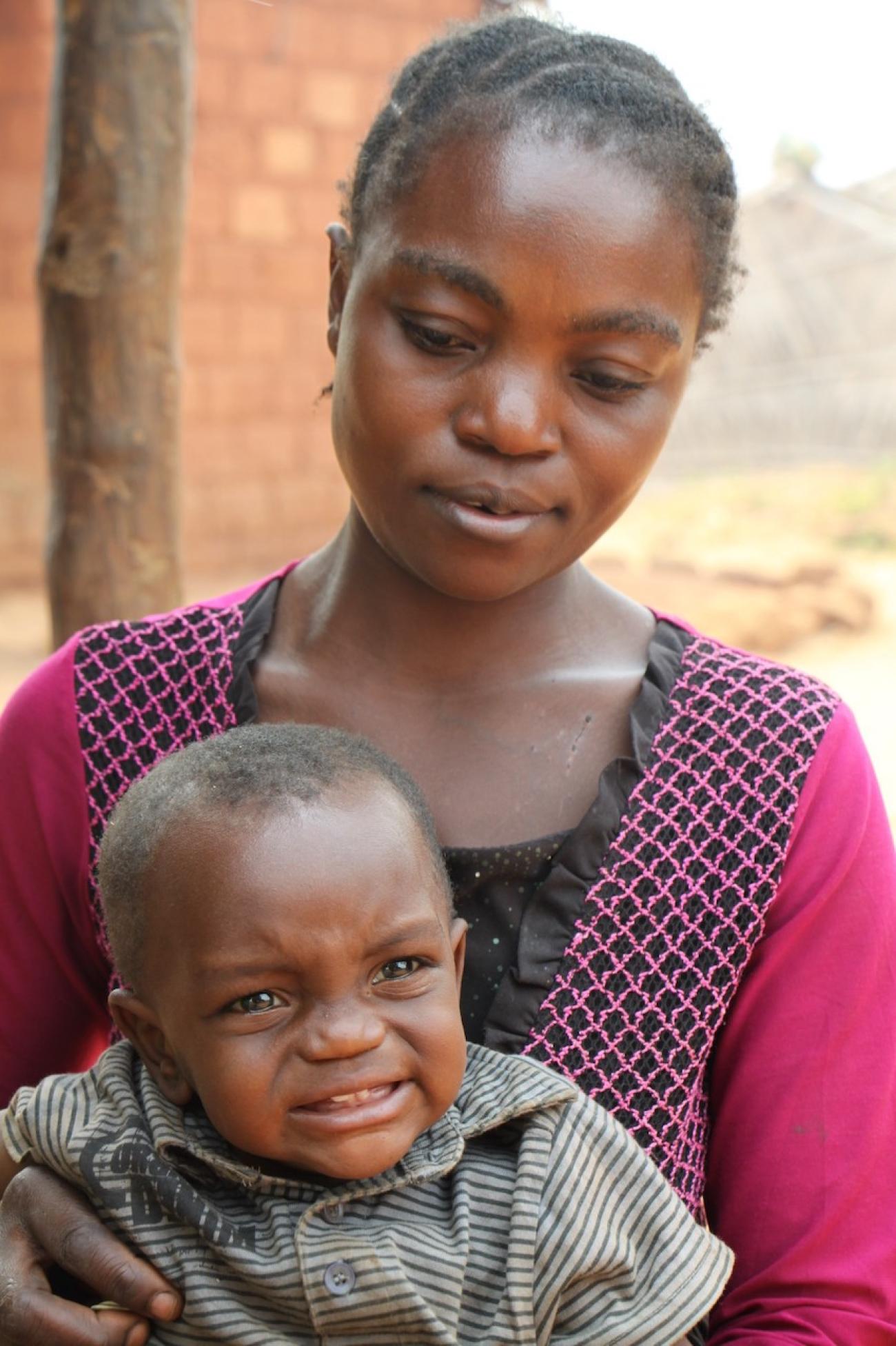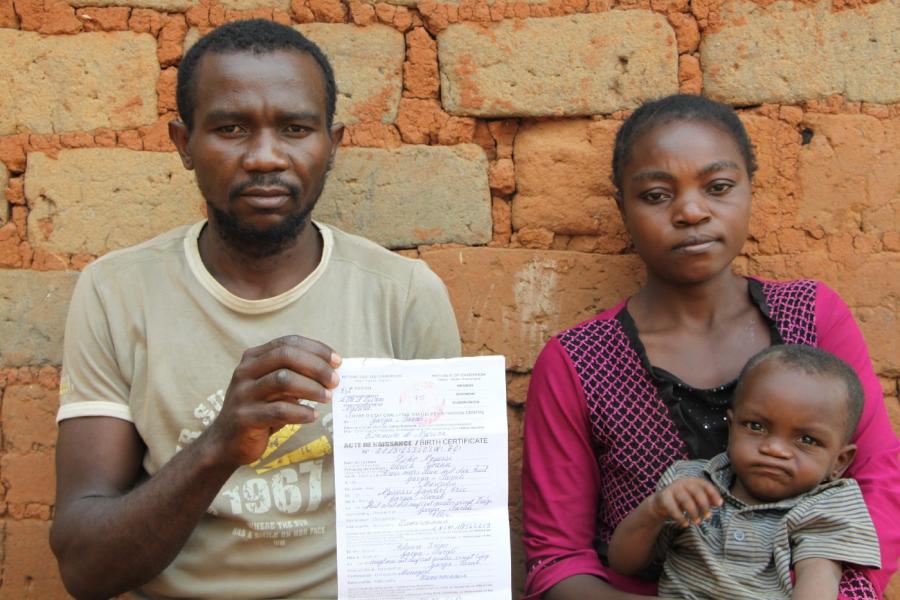A Child’s Right to Identity: UNICEF and EU aim to reach every child in Eastern Cameroon

Since 2017, the EU-UNICEF birth registration programme has been training community civil registration officers to routinely register all births in Garga Sarali.
“We think Irene is 33-years-old,” chimes in Tantie, an older aunt, hovering within earshot of our conversation.
But no one knows Irene Adawa’s exact age because she does not have a birth certificate, she does not possess a national identity card, she has never owned a passport and she does not have a marriage certificate.
There is nothing within official Cameroonian state records to show that Irene Adawa exists.
Birth registration in Cameroon is a big challenge. Current estimates point to 400,000 children in the country who do not have a birth certificate. And year upon year, that number increases.
Many children are missing out on their first right, often with detrimental consequences. For example, primary aged school children without birth certificates are not allowed to sit examinations for secondary school level education in Cameroon.

However, change is coming. Despite some of Irene’s children being born at home, she easily obtained birth certificates for them as part of the EU birth registration programme in the community.
The birth registration process in the village of Garga Sarali has been streamlined by a series of tools including forms, community birth registration books and training of birth registration agents, provided by funds from the European Union.
Getting the certificate into their hands was a straightforward process. Here a system interacts with frontline workers with huge successes. In Irene’s instance after giving birth at home, the birth registration agent visited the family, recorded key information in the community birth registration book and notified the village chief about the births.
Following this the birth registration agent passes the declaration logged in the community birth registration book to the civil registration officer, to establish a birth certificate based on the information provided in the declaration of birth.
This process of facilitating the birth registration process for babies born outside of a medical jurisdiction is giving a fair chance to communities that do not have access to medical services, or who simply cannot afford them.
The European Union and UNICEF are supporting the Government of Cameroon, specifically the National Civil Status Registration Office, to address the disparities in birth registration. Since 2017, the EU-UNICEF birth registration programme has been training community civil registration officers to routinely register all births in Garga Sarali, including those which take place at home. According to Frédy Bekono, focal point for the birth registration programme at the National Civil Status Registration Office, the results are encouraging:
“Before our partnership with the European Union and UNICEF started, in 2016 only 21 per cent of births in the health district of Betare-Oya in Eastern Cameroon were registered, by 2018 this had increased to 54 per cent,” he said. “This surpasses the original programme objective of a 20 per cent increase in birth registration; our goal is for every child born in Cameroon to have a birth certificate. Equally we’ve seen good results in Ngoura, an arrondissement in Betare-Oya. In 2018, based on the data we collected from community birth registration books, 82 per cent of home births there were registered. We are making good progress.”
For Irene’s husband, Eric, birth registration is a vital first step in a child’s right to an identify: “I wanted each of my children to have a birth certificate because it is the first document in life; things can be very difficult for a child who doesn’t have one,” he says.






